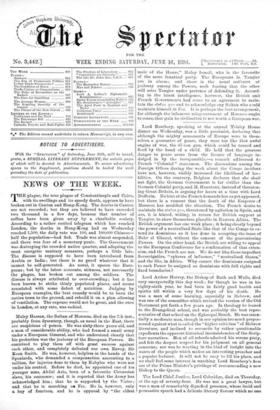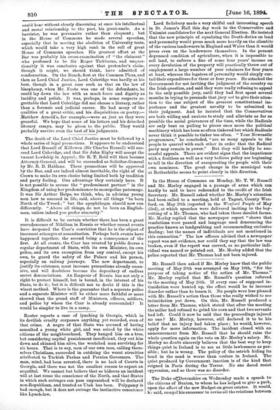The Lord Chief Justice, Lord Coleridge, died on Thursday, at
the age of seventy-four. He was not a great lawyer, but was a man of remarkably dignified presence, whose lucid and persuasive speech had a delicate literary flavour which no one
could hear without clearly discerning at once his intellectual and moral relationship to the poet, his great-uncle. As a barrister, he was persuasive rather than eloquent ; but in the House of Commons he made several speeches, especially that in moving the abolition of University tests, which would take a very high rank in the roll of great House of Commons speeches. His greatest effort at the Bar was probably his cross-examination cf "the claimant" who professed to be Sir Roger Tichborne, and unques- tionably it was conclusive against that pretender's claim, though it might, we should think, have admitted of condensation. On the Bench, first at the Common Pleas, and then as Lord Chief Justice, Lord Coleridge was hardly at his best, though in a great case such as that on the law of blasphemy, when Mr. Foote was one of the defendants, he could lay down the law with as much force and dignity as lucidity and polish. It was, perhaps, in some respects re- grettable that Lord Coleridge did not choose a literary, rather than a forensic and judicial career. He had many of the qualities of a great critic, and his disquisitions on poetry,— Matthew Arnold's, for example,—were as just as they were graceful. We hope that some of his letters and his detached literary essays, may be given to the public. They would probably survive even the best of his judgments.



































